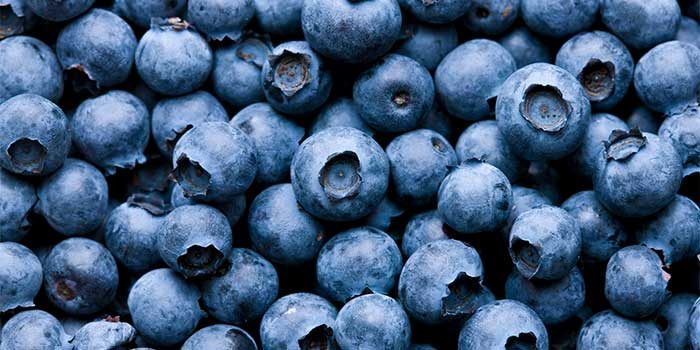Blueberries are small, round, purple, or blueberries belonging to the heather family. Blueberries have tons of Nutritional Importance and Health Benefits. Highbush and lowbush blueberries are the two most common varieties.
As a crop, their history dates only to the dawn of the 20th century, when the daughter of a New Jersey farmer teamed up with a botanist to cultivate and breed blueberries. The first crops were harvested in 1916, igniting the blueberry boom and our love for this tiny fruit.
Blueberries are plump, sweet, and juicy, with a color that ranges from indigo to deep purple.
While the cultivated variety of the fruit originated in New Jersey, it’s currently grown in 38 states commercially, and in other parts of the world (Canada, British Columbia, and South America).
Nutrients per Serving
A half-cup serving of blueberries contains:
- Calories: 42
- Protein: 1 gram
- Fat: Less than 1 gram
- Carbohydrates: 11 grams
- Fiber: 2 grams
- Sugar: 7 grams
Blueberries contain dietary fiber, which helps your digestive system run smoothly. The fruit is also an excellent source of Vitamin C, K, and A, Manganese, and Antioxidants.
Blueberries contain a significant amount of anthocyanin pigments. Anthocyanins are responsible for blueberry juice’s rich purple color and have shown promise in helping to reduce signs of aging, risk of cancer, and damage to DNA. Blueberries also appear to have the highest levels of antioxidants out of any common fruit or vegetable.
Health Benefits Of blueberries
Blueberries contain vitamins, minerals, and antioxidants that provide notable health benefits. For example, blueberries are rich in vitamin K, which plays an important role in promoting heart health. The vitamin is also important to bone health and blood clotting.
Other health benefits of blueberries include:
Higher antioxidant levels
Blueberries are one of the best natural sources of antioxidants. While antioxidants aren’t necessary for your body to function, they help protect your body from damage by free radicals. Your cells produce free radicals as waste products, but these particles can go on to hurt other cells. Eating blueberries regularly for just two weeks can help reduce damage to your cells by as much as 20%.
Better cholesterol levels
High cholesterol is dangerous for your heart because it can build up in your arteries. The cholesterol that builds up eventually gets oxidized, and this damages your body if it happens in large amounts. Antioxidants in blueberries help prevent the cholesterol in your blood from being oxidized and may even help keep cholesterol from building up in the first place.
Helps in preventing some cancers
The antioxidant effect of blueberries can reduce inflammation throughout your body and may inhibit the growth of cancer — stopping cells from becoming malignant and slowing the growth of cancerous cells
Manage high blood pressure
Eating blueberries regularly can help reduce high blood pressure in people with metabolic syndrome and protect cardiovascular health. The current hypothesis is that blueberries help the body produce more nitric oxide, which reduces blood pressure inside blood vessels and helps with smooth muscle relaxation.
Control diabetes
Blueberries can help people with diabetes better manage their blood sugar levels. Studies have shown that eating blueberries regularly can help improve insulin sensitivity in people with type 2 diabetes. Blueberries can also help reduce fasting blood sugar levels by nearly a third in people with type 2 diabetes, helping them to manage their blood sugar levels more effectively.
Healthy digestion, weight loss, and feeling full
Blueberries help to prevent constipation and maintain regularity for a healthy digestive tract because of their fiber content.
Dietary fiber is an important factor in weight loss and weight management by functioning as a “bulking agent” in the digestive system. High fiber foods increase satiety, or the feeling of being full, and reduce appetite.
Feeling fuller for longer can reduce a person’s overall calorie intake.
How to Prepare Blueberries
Blueberries are native to temperate parts of North America. They are traditionally in season from April to September in the US, but are sold year-round as imports from South America. These tasty berries can be found in supermarkets, health food stores, and farmers’ markets around the country.
Blueberries bring a mild, sweet flavor that’s perfect for baked goods and desserts. You can also enjoy raw blueberries by themselves as simple healthy snacks. Blueberries last longer if they’re refrigerated or frozen, and they can be added in fresh or frozen form to most recipes with similar results.
Here are some suggestions for how to add blueberries to your daily diet:
- Eat blueberries raw as a snack.
- Bake a blueberry pie.
- Add blueberries to smoothies.
- Make blueberry juice.
- Include blueberries in pancakes.
- Dry blueberries for a raisin-like treat.
- Make a blueberry gazpacho.
Whether you’re buying fresh or frozen, blueberries are a perfect snack to eat on their own, and nourishing addition to smoothies, yogurt, or oatmeal. With its sweetness and juiciness, this small fruit packs a huge punch and can enhance the flavor of just about anything.









